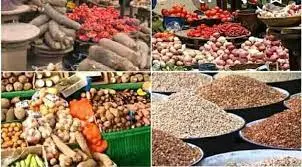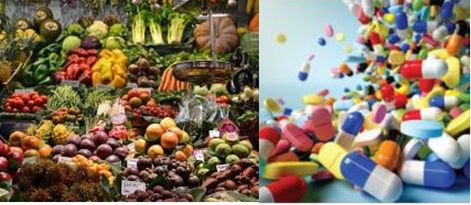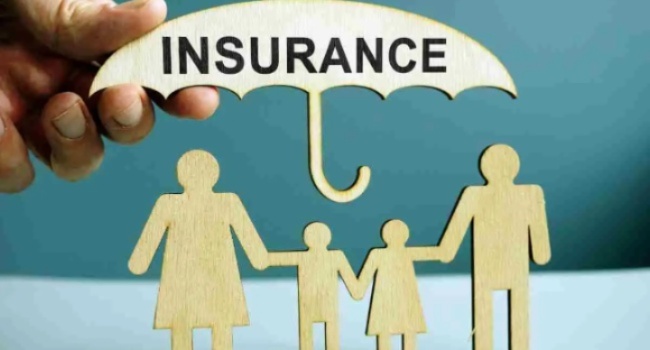The high cost of drugs in Nigeria has become a pressing issue in recent times as prices continue to rise unabatedly, even as the people equally grapple with high food prices.
Just as basic medicines are currently out of reach, especially for the low-income earner, high food prices have also made it difficult to have good meals with balanced diets to strengthen their body’s immune system against diseases.
Join our WhatsApp ChannelThe high cost of drugs is due to a combination of factors but chiefly among them is importation costs, due to high foreign exchange rate, as most of the country’s pharmaceutical products (estimated to be not less than 60 per cent) are imported. The floating of the naira last year, which unfortunately led to devaluation of the currency in 2023, resulted in over 300 per cent depreciation as the exchange rate rose from N400 in June last year to over N1,600 per dollar.
From 22.79 per cent in June 2023, the headline inflation jumped to 34.19 per cent as of June 2024, reaching a 28-year high. Also, the food inflation rate surged from 25.25 per cent in June 2023 to 40.87 per cent in June 2024, reflecting the spike in cost of living crisis faced by the people.
Impact of Pharmaceutical Companies’ Exit on Drug Cost
The cost of drugs has also been exacerbated by the exit of big multinational pharmaceutical companies from the country with the most recent ones being GlaxoSmithKline Consumer Nigeria Plc and Sanofi-Aventis Nigeria Ltd, who cited some reasons for their exit, including challenges in keeping up with demand, a shortage of dollars for importing ingredients, and unfavourable business conditions. Ending their production in Nigeria led to scarcity of certain essential drugs and higher prices not only in Nigeria but in other African countries that they equally supply to.
Nigeria, like other low-and-middle-income countries (LMICs), has continued to endure the challenges of poverty, inadequate water and sanitation facilities, and poor healthcare system which often make infection prevention and control difficult. It is even worse as non-communicable diseases like cancer, diabetes, hypertension, and cardiovascular diseases are gradually rising in the country.
These pharmaceutical companies produce medicines for sicknesses prevalent in the country and other African countries such as malaria, HIV/AIDS, diarrheal diseases, and tuberculosis (TB) among others.

READ ALSO: GSK, JSM Exit Will Further Squeeze Nigeria’s Health Sector – Obi
An analysis of data released by the National Bureau of Statistics (NBS) on foreign trade showed that the value of drugs imported into Nigeria rose by 68 per cent to N81.8 billion between July and September 2023. About N48.74 billion worth of drugs was imported in the same period in 2022.
Prices of many antibiotics have hit the roof top. Prime Business Africa market survey shows that Augmentin 625mg (14tabs) which was around N5,000 early last year has jumped to N24,000. Also, the price of TAB Ciprotab 500mg rose from N1,500 in 2019 to N2,500 in 2023 and now N4,000.
READ ALSO: Nigerians Should Adopt Healthy Lifestyle To Curb Diabetes Scourge – Medical Expert
The price of Ventolin inhaler used by asthmatic patients had surged to N10,000 before but dropped to N8,500.
Some essential analgesics like paracetamol 500mg, which was around N50 per card, now costs between N200 and N250 at pharmacy shops.
Diabetic Patients reel under weight of High Drug Costs
Diabetic patients appeared to be the worst hit as those living with the health challenge lament skyrocketing cost of drugs they use.
In a recent interview with Prime Business Africa, second vice president, Diabetes Association of Nigeria, Comrade Bernard Enyia, said it currently costs about N150,000 to treat diabetes in Nigeria monthly. According to him, insulin, which was sold at N3,500 two years ago, has jumped to N11,000 and above. This is not all, as there are other medications they are required to take. Also, injection syringe prices have gone up. This is aside from regular tests to monitor sugar level and other vitals. “Diabetes drugs are so expensive now. It is difficult for us to buy and several other people, who cannot afford it, have stopped taking it,” Enyia lamented.
He said some diabetic patients who can’t afford the high cost of drugs have been forced to go for other cheaper alternatives like trado-medicine products.
High Food Prices Worsen Case for Nigerians
Medical experts have also expressed concern that the high cost of food across the country is also a threat to wellbeing of people. Apart from maintaining personal hygiene to prevent contamination and spread of communicable diseases, people also need good diet to live healthy life. “We are in a precarious situation in the country as high cost of food items could deny people the opportunity of having good diet that would build their immune system to fight certain diseases,” said Dr Maxwell Udeh, a public health consultant in a chat with Prime Business Africa.

According to NBS reports, the national average cost of a healthy diet has been on a steady rise. “The Cost of a Healthy Diet (CoHD) is the least expensive combination of locally available items that meets globally consistent food-based dietary guidelines. It is used as a measure of physical and economic access to healthy diets,” the Bureau said. The report for June 2024 showed that it rose to N1,241 from N1,041 in May 2024, representing 19.2 per cent increase. The rising cost means less people would have access to healthy diets which has implication for healthy life.
READ ALSO: Food Inflation In Nigeria Hits 40.66%, Deepening Economic Woes
Experts have emphasised the need for comprehensive policy solutions to address the issue, including promoting generic drugs, improving healthcare financing, strengthening regulatory oversight, and raising public awareness of safe medication practices.
Tinubu’s Executive Order On Pharmaceuticals
In an attempt to deal with the challenge of high costs of pharmaceutical products, President Bola Tinubu, signed an Executive Order in June, introducing zero tariffs, excise duties and Value Added Tax (VAT) on specified machinery, equipment and raw materials, with the goal of boosting local production of healthcare products and reducing costs.
However, some have expressed concerns that the Executive Order, though a laudable initiative, has not proven to be an effective remedy to reducing high cost of drugs in the country.
Commenting on the Executive Order, President, Pharmaceutical Society of Nigeria, Professor Cyril Usifoh, in a media interview recently, said it is a good initiative.
Usifoh, who noted that the zero tariffs, excise duties and VAT will go a long way in reducing the cost of production, however, appealed to the federal government to create a window for pharmaceutical manufacturers to access FX at an affordable rate to be able to import all they need to increase production and bring down the cost of drugs.
Also, Comrade Enyia pointed out that the tax waiver only covers specific machinery and raw materials imported by local manufacturers to produce drugs and other medical supplies.
According to him, prices of drugs like insulin and blood sugar testing machines remain high making those living with diabetes grapple with out-of-pocket expenditure.
He called on Federal Government agencies like the Nigeria Customs Service, SON, NAFDAC and FIRS to take note of essential drugs imported into the country that were not captured in the executive order and streamline implementation.
“Note that with the exit of GSK, Sanofi and the likes from Nigeria there will not be any marked difference in prices of any imported drugs products as there was no clear cut statement to remove tariffs on them. The policy in my opinion is lopsided excluding the imported drugs,” he stated.
Victor Ezeja is a passionate journalist with seven years of experience writing on economy, politics and energy. He holds a Master's degree in Mass Communication.



















Thanks I have just been looking for information about this subject for a long time and yours is the best Ive discovered till now However what in regards to the bottom line Are you certain in regards to the supply.